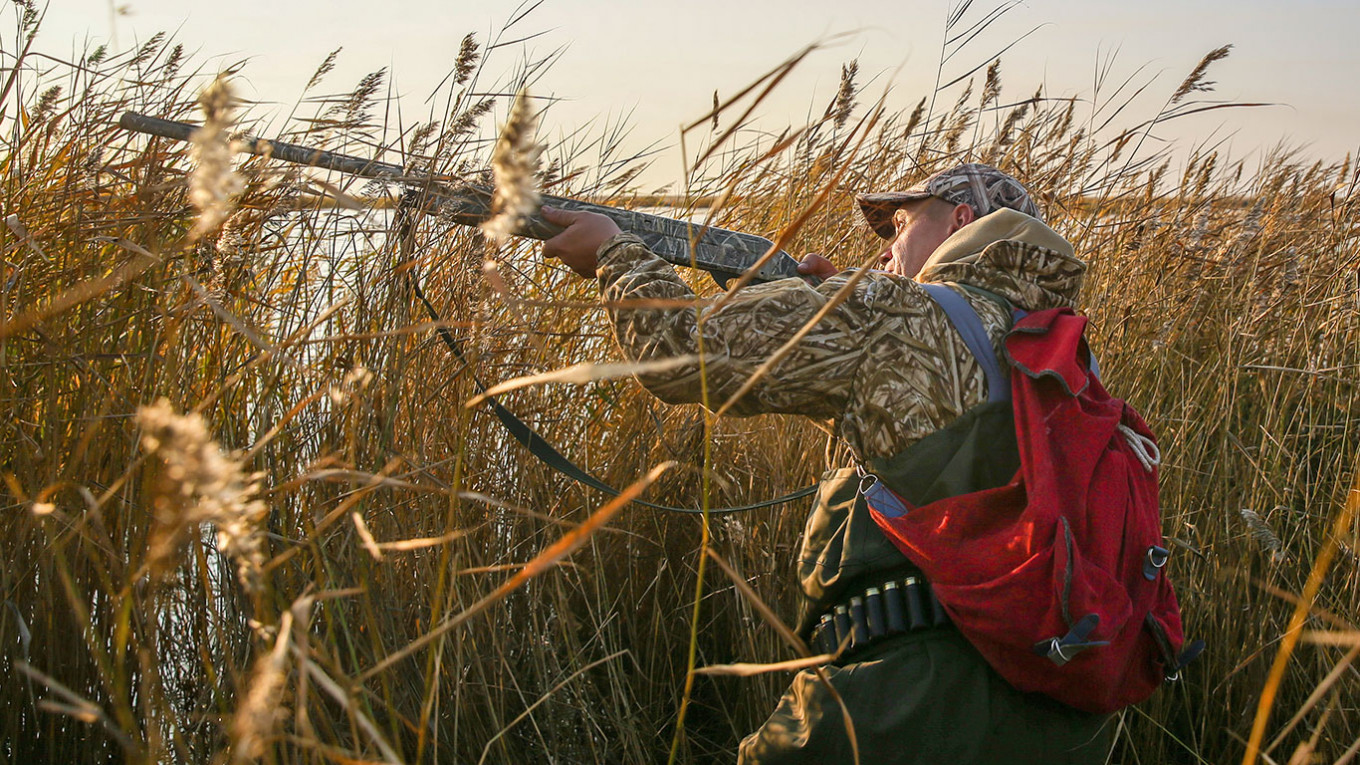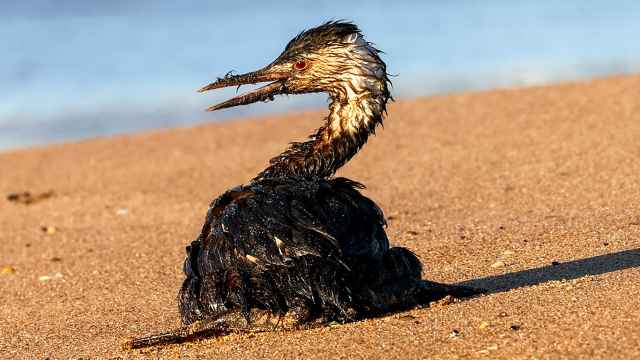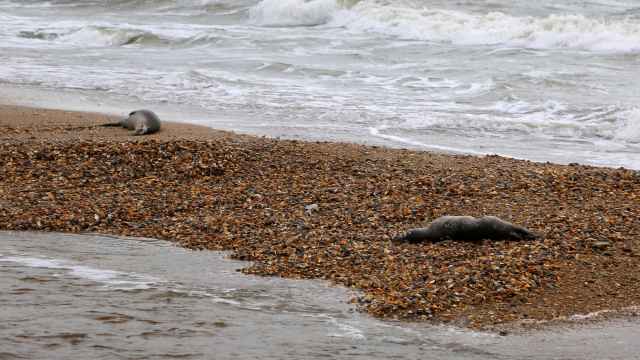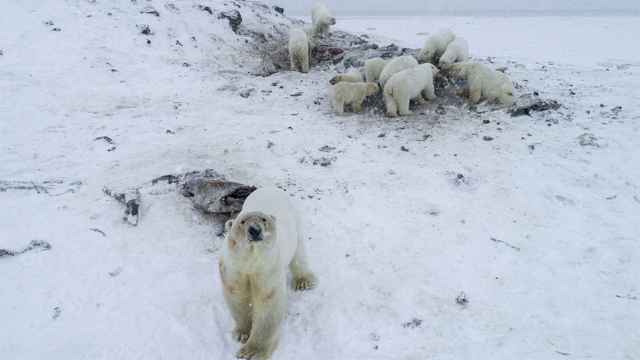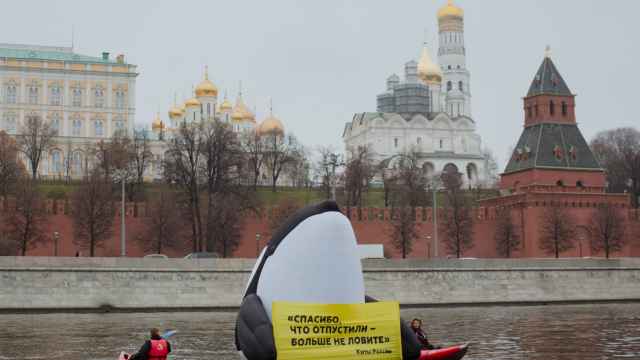New amendments to Russia’s hunting law will effectively legalize trophy hunting of endangered animals, Greenpeace activists said Monday.
Russia is home to 13 endangered species: the Amur tiger, Central Asian and Far Eastern leopard, snow leopard, bison, saiga, Przewalski's horse, Altai mountain sheep, gazelle, polar bear, Siberian crane, bowhead whale and gray whale.
According to the amendments, which enter into force Monday, the killing of rare and endangered species listed in Russia’s Red Book is permissible in “exceptional cases.” The amendments also note that animals may only be hunted for research and education or “for the purpose of acclimatization, resettlement and hybridization of hunting resources.”
While the amendments forbid actions "that can lead to the death, reduction in the number or violation of the habitat" of Red Book species, Greenpeace says that the language used effectively lifts the ban on killing these species where the law previously only allowed their capture.
“If shooting used to be expressly prohibited in the old hunting law, now there is no such thing,” Mikhail Kreindlin, the head of Greenpeace Russia’s program for specially protected areas, told the Govorit Moskva radio station.
“We believe that the hunting lobby in the [lower-house State] Duma asked for these amendments in order to be able to hunt Red Book animals under the guise of hunting for scientific purposes,” he added, saying that Russia's elite could simply pay scientists off to justify their hunting.
The amendments were authored by State Duma deputies Vladislav Reznik, head of the committee on natural resources; Nikolai Valuev, first deputy chairman of the committee on ecology and environmental protection; Nikolai Nikolayev and Maxim Shchablykin.
According to the Kommersant business daily, Reznik is a member of the elite “Mountain Hunters' Club.” The clubm headed by former FSB special forces officer Eduard Bendersky, previously requested five permits to hunt the Putorana snow sheep, a rare species listed in the Red Book.
Other environmental activists disputed Kreindlin's claims that the amended hunting law would enable unhindered trophy hunting, however.
“The wording does not fundamentally change anything, because the issuance or non-issuance of permits will depend not on scientists, but on [state environmental watchdog] Rosprirodnadzor,” Vladimir Krever, the scientific director of WWF Russia's biodiversity conservation program, told Kommersant. “Although, of course, the old wording, when the hunting of Red Book species is absolutely prohibited, is better.”
A Message from The Moscow Times:
Dear readers,
We are facing unprecedented challenges. Russia's Prosecutor General's Office has designated The Moscow Times as an "undesirable" organization, criminalizing our work and putting our staff at risk of prosecution. This follows our earlier unjust labeling as a "foreign agent."
These actions are direct attempts to silence independent journalism in Russia. The authorities claim our work "discredits the decisions of the Russian leadership." We see things differently: we strive to provide accurate, unbiased reporting on Russia.
We, the journalists of The Moscow Times, refuse to be silenced. But to continue our work, we need your help.
Your support, no matter how small, makes a world of difference. If you can, please support us monthly starting from just $2. It's quick to set up, and every contribution makes a significant impact.
By supporting The Moscow Times, you're defending open, independent journalism in the face of repression. Thank you for standing with us.
Remind me later.


